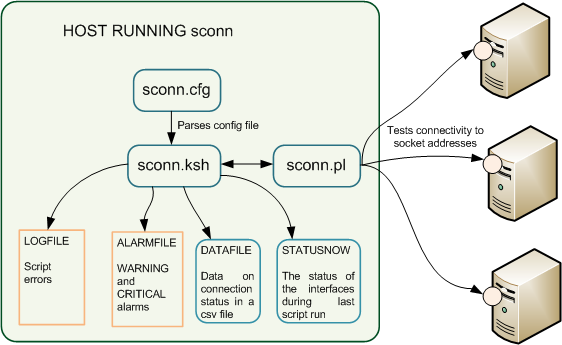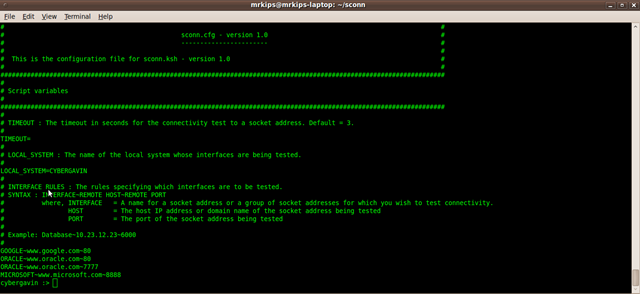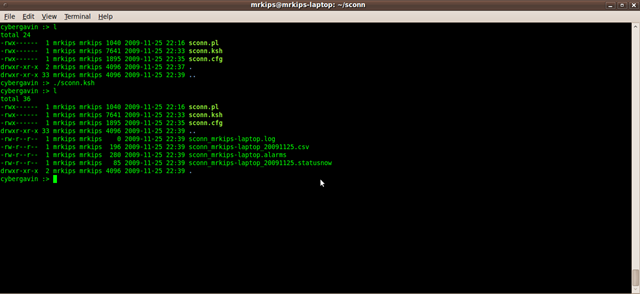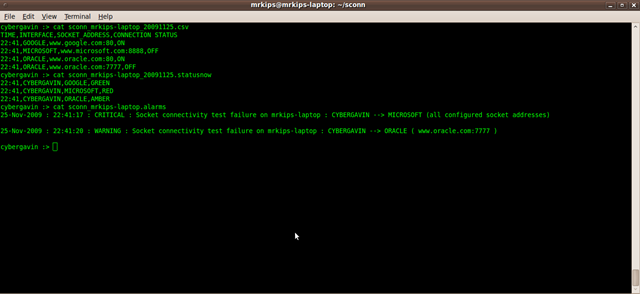Today, most enterprise systems are complex, requiring several systems to implement services, thereby creating several system interfaces. A basic monitoring requirement is to check if the system stack is broken. i.e. whether system interfaces are broken. Although almost all software products have some sort of "health monitor" to test connectivity with an interfacing system, it can be handy to have a standard utility to test all interfaces. Well, there is the wonderful "netcat" utility which can easily meet this requirement. Unfortunately, netcat is not standard on all UNIX systems (e.g. Solaris) and you may have constraints (e.g. company policy) which prevent you from installing netcat.
sconn is a simple korn shell script which helps you monitor socket connectivity for system interfaces. It’s basically a wrapper around a perl script which tests the connectivity. A simple script in perl alone would have sufficed, but as I’m not familiar with perl, I used the korn shell to meet my requirements. More people will be familiar with shell scripting than with perl and so if others have similar requirements, sconn could be used as-is or tweaked.
How sconn works:
Screenshots:
(1) Configuration
(2) Execution
(3) Output
Recommendations:
-
Execute sconn regularly as a cron job for continual monitoring.
-
Feed sconn data and/or statusnow files to a dashboard or graphing program.
Version 1: Last updated – 22:56 GMT, 24th November 2009
| Download sconn v1.0 |
NOTE:
(1) sconn has been scanned and is safe to download.
(2) sconn has been tested. If you wish to use sconn, I recommend you also test it before deploying it on a Production system.
(3) Your rating of this post/software will be greatly appreciated. Also, feel free to leave comments.




